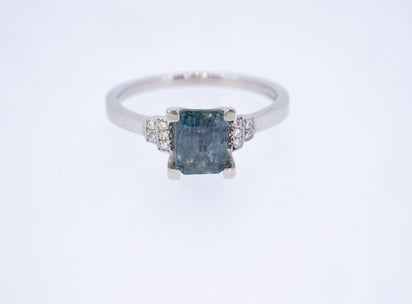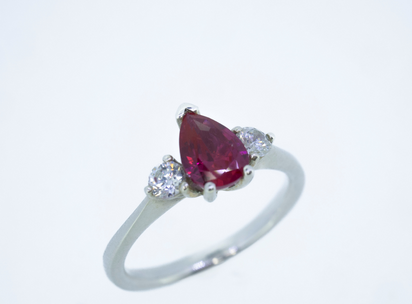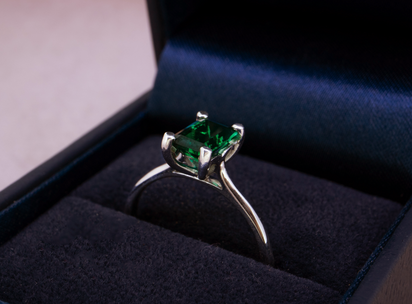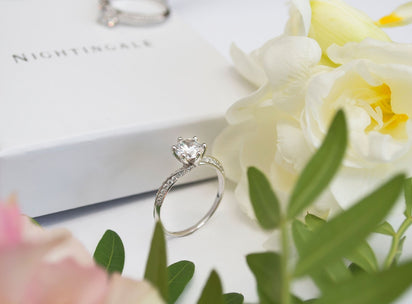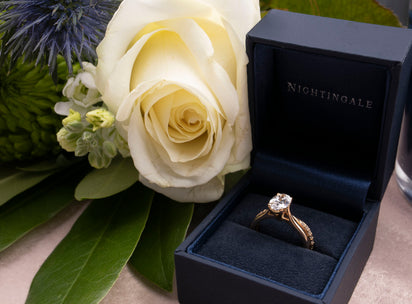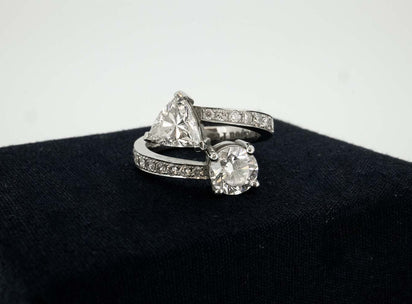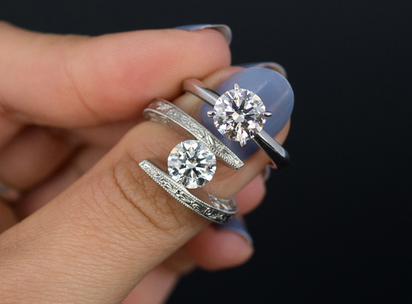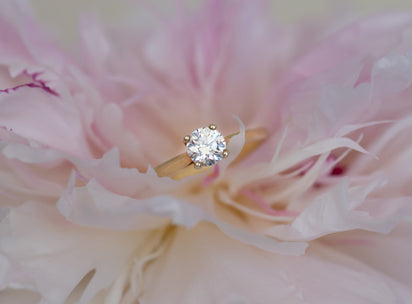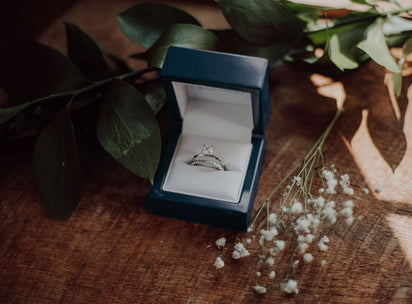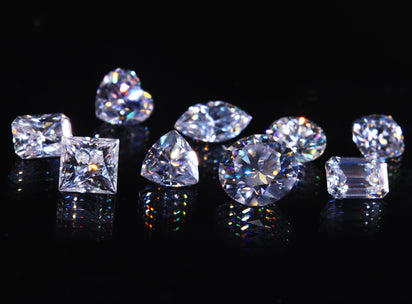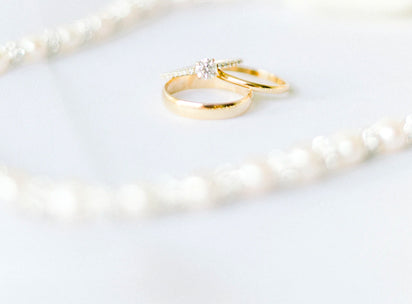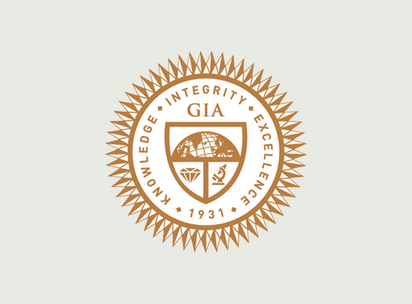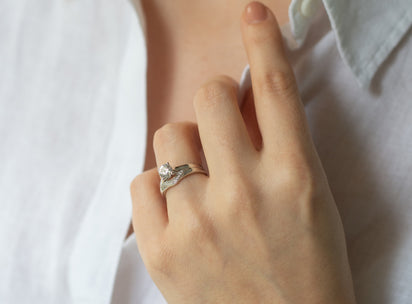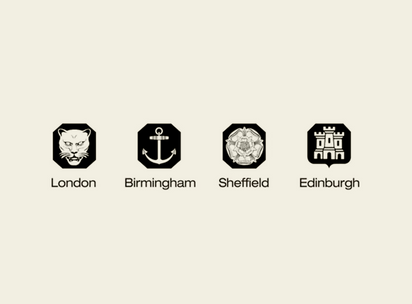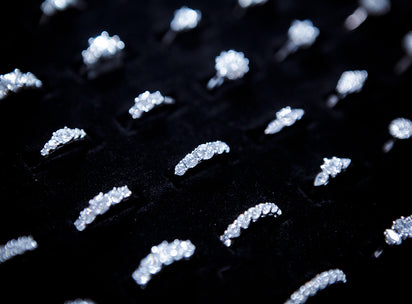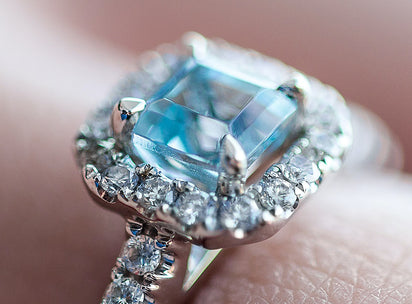Learn more about our recommended metals including platinum and 18ct gold with our comprehensive guide.
Making the right choice
The biggest consideration when choosing the metal of your bespoke ring is naturally going to be it's appearance, however there are other things to take into account too.
Different metals will require different maintenance, they can age differently and even have different effects on the skin of the wearer. We've listed the most common choices below along with some key information you might not be aware of.
Platinum
Often the most expensive choice for jewellery, platinum is the world's rarest metal. For every kilogram of gold extracted from the earth, only 100g of platinum is available making it a much more exclusive choice.
Appearance
Presenting in a silver/white sheen, platinum creates a clean and contemporary aesthetic. It has a very low reflection point so it won't be overly shimmering with colour meaning your gemstone has full attention.
Maintenance
Platinum is extremely low maintenance and will keep it's shine with minimal care. A simple buffer with a cloth will have no effect over the long term, unlike gold which will typically tarnish. Platinum can even improve with appearance over time, developing a satin like finish from general wear and micro scratching which many customers find aesthetically pleasing.
Other considerations
Platinum is most suitable for those who suffer from skin allergies and irritations as platinum is inherently a very unreactive metal. And because what we refer to as platinum is actually a platinum allow made up of 95% platinum and 5% other metals, there's less chance of your skin reacting to other metals when compared to gold, which typically has a higher proportion of copper, zinc and other metals mixed into its alloy.
18ct Gold
Gold is the classic choice for precious jewellery and a popular choice among customers wanting a more traditional aesthetic. Gold is measured in carats, which refers to the purity of the material. We typically prefer 18ct gold as it gives a good balance between durability, longevity and appearance.
What does carat refer to in gold?
What we refer to as gold in the jewellery industry is actually a gold alloy. Pure gold (referred to as 24ct) by its nature is a very soft metal which makes it unsuitable for fine jewellery. Other metals are added to the alloy to make it more durable and easier to craft.
The Carat number refers the proportion of pure gold in the alloy, with 24ct being near enough pure gold.
We typically recommend 18ct gold which contains 75% gold and 25% other metals (usually silver, nickel, copper and zinc). The 75% gold content ensures that you still have the expected signature style of gold, along with sufficient durability for everyday wear gained from the other metals.
12ct gold and below is also commonly used in jewellery and whilst it's more durable, the 50% or lower gold in the mixture means it doesn't have the same quality shine or finish.
Appearance
Gold can be coloured in different styles depending on the composition of the alloy.
18ct White Gold
White gold is commonly compared to platinum as both offer a similar colour and shine. 18ct white gold comprises of 75% gold and 25% white metals such as silver, nickel or palladium which is commonly plated with rhodium.
18ct Rose Gold
Rose gold is made with a similar process to white gold, but much more copper material is added to give rose gold it's signature rose colour.
18ct Yellow Gold
Keeping as close as possible to the natural colour, yellow gold contains the same 75% purity as other colours, however emphasis is placed on only adding metals which do not interfere with it's natural hue.
Maintenance
When compared to platinum, gold jewellery is more prone to change appearance slightly over the years and requires specific maintenance from the wearer.
White gold
It's common practice to use rhodium plating on white gold jewellery to give it it's white appearance which will erode over time during regular cleaning. This plating will need to be replaced every year or two depending on the level of wear and tear experienced. This can cost upwards of £60 per re-plating, which over time can really add up.
At Nightingale, we use a white gold alloy with added palladium which eliminates the need to use a rhodium coating, meaning you'll never need to re-plate a white gold ring from us.
Rose gold
Gold doesn't change over time, but copper has a tendency to darken. Over time you may notice your jewellery appear redder than when you first bought it. This is completely natural, but if you want to breathe some new life into your piece then try a washing up liquid/ water solution combined with gentle brushing from a toothbrush.
Yellow gold
Despite not having a significant colour change compared to white or rose gold, yellow gold is still susceptible to change appearance slightly because of the other metals used in the alloy. Again, a good clean with the solution listed above should suffice.
Other considerations
Generally speaking 18ct gold will be cheaper than platinum (the natural comparison to white gold) however gold tends to require higher levels of maintenance which should be considered in the long term cost, especially if you go with a white gold variant which requires replating.
12ct gold
12ct gold shares the same general properties as 18ct gold, but instead of having 75% pure gold it only has 50%. Naturally having half the gold content of 18ct gold makes 12ct gold significantly cheaper.
But, with a lower cost comes some drawbacks. Because of the equal mixture of gold and other metals, 12ct gold will tarnish much faster than 18ct. Additionally, 12ct gold simply won't shine to the same degree as higher purity gold, there's simply less shiny metal in the compound.
Choosing a finish for your metal
Ok, so you've made one of the biggest decisions, you've settled on the metal you like! Now for an equally challenging decision, how do you want it to be finished? We've listed out some options below to give you some ideas, although note that certain finishes need thicker ring bands then others, so may not be suitable depending on your design.
- Polished
- Florentine
- Pebbled
- Satin
- Matt
- Wire/soft brushed
- Hammered/ Pebbled
More questions?
Our bespoke design process makes sure that every question you have regarding style, finish and metal suitability is taken into account and answered fully before commiting to a final design, so if you have more questions feel free to get in touch with our team!
